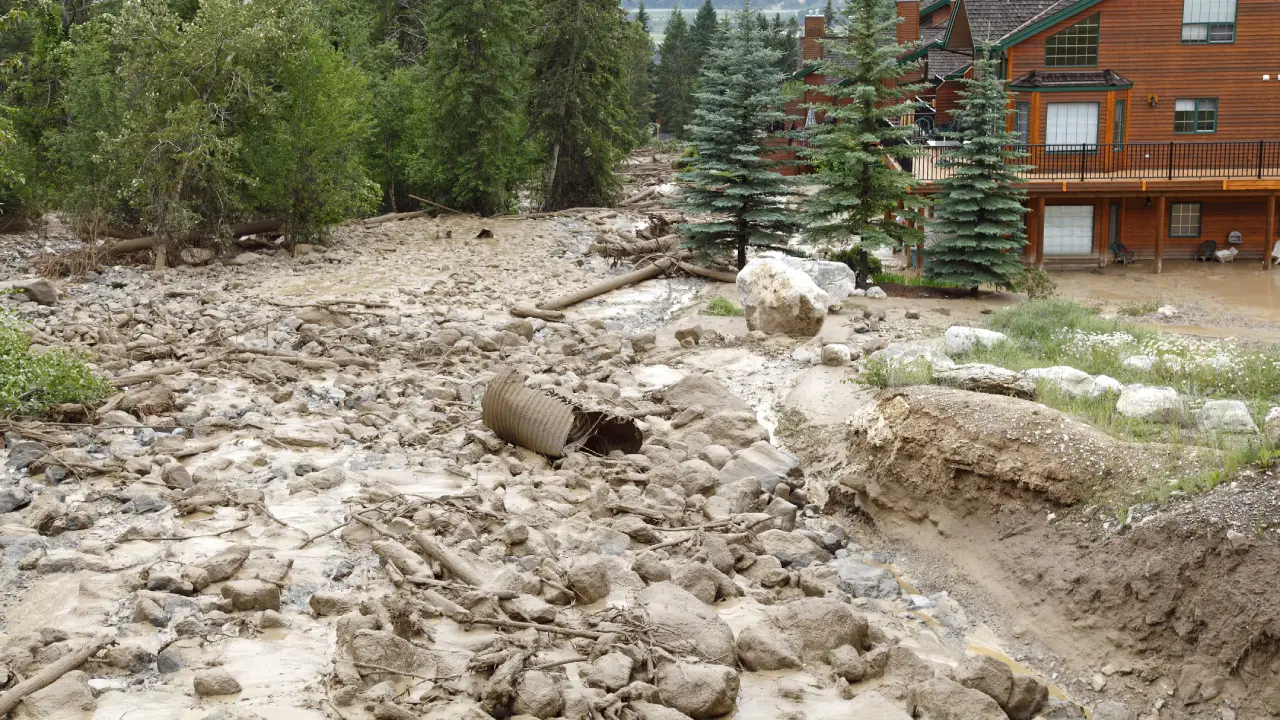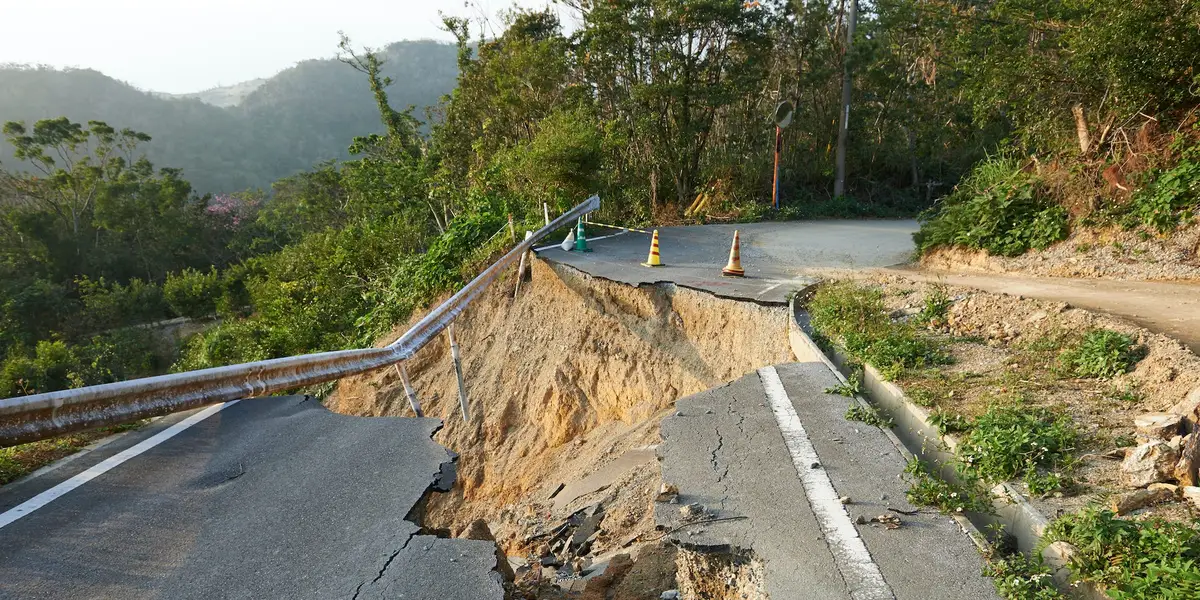Insurance Cover Landslides however, you may get protection by taking out a Difference in Coverage (DIC) insurance policy. In this review, MoneyGeek finds out why homeowners insurance does not cover landslides and mudslides and details the alternative solution for homeowners who need protection from this sort of peril.
A house is typically the largest single purchase an individual will make during their lifetime. Considering how expensive a home investment can be, any reasonable mortgage holder will attempt to safeguard their home from damage. Unfortunately, a few occasions are outside of our reach. At the point when a natural disaster strikes, there is very little we can do to forestall the ruin it will leave behind.
Landslides, which happen when earth, rock or debris moves downward on slanted land, are only one of the natural disasters that can cause significant damage to your home. Landslides can happen anywhere in the United States, and are responsible for somewhere in the range of 25 and 50 deaths each year. These natural disasters also cause, on average, about $3.5 billion in damages each year nationwide. Knowing whether your homeowners insurance policy covers landslides before a disaster happens is crucial to guarantee your house is safeguarded.

Why Doesn’t Homeowners Insurance Cover Landslides and Mudslides?
Homeowners insurance does not cover landslides and mudslides, nor will they be covered by flood or earthquake insurance. Similar disasters considered “developments by the Earth” occasions, for example, mudflows, sinkholes and erosions are likewise not covered because damages are usually extensive and would imply colossal expenses. As for mudflows, which are different from mudslides, you may have the option to purchase a separate coverage similar to a flood insurance policy.
To shield your home from the expense of damage, you would need to take out a DIC policy, which you may purchase as a standalone policy or as an endorsement from your ongoing insurance provider.
Do You Need Coverage for Landslides and Mudslides?
A Difference in Coverage insurance contract typically costs two or three hundred dollars more than typical homeowners insurance. This acts as expanded coverage for floods, earthquakes, hurricanes and different perils not included in your policy. However a DIC policy is expensive, it can save you a significant amount of cash if such disasters hit your home.
What kind of insurance covers landslides?
Although a standard homeowners insurance policy does not cover landslides, you may have the option to get certain kinds of insurance that will. For example, you may have the option to get an earthquake endorsement on your existing policy, or you may have the option to purchase a separate earthquake policy to cover damage from an earthquake that causes a landslide to damage your home.
Another option may be a difference in conditions (DIC) policy. A DIC insurance covers specific perils that are barred from a standard policy. This kind of policy may cover perils, for example,
- Earthquake
- Flood
- Landslide
- Mudslide
- Earth development
However, these policies are not offered by all insurance companies, as they are considered a specialty lines item. If you are interested in a DIC policy or want to determine whether it is the right choice for your home, it may be useful to reach out to your insurance agent to learn more.

How do I prepare for a landslide?
A landslide can create major issues for homeowners, yet luckily, you can take precautions in advance. Staying aware of your area can assist you with preparing not to be surprised by a potential landslide. The following are a couple of ways to prepare for a landslide:
Avoid areas susceptible to landslides. Stay away from homes or buildings that are near steep slants or mountain edges. These areas are usually the first to be affected via landslides.
Know your home’s history. Landslides typically hit where they have a history of hitting previously. Research your area or contact officials for geography records to see the history of your home to be aware if you are in an area that has experienced landslides.
Watch out for water drainage. Pay special attention to patterns and increases in runoff water. If you notice water starting to join, that is an area to avoid during a landslide.
Have a crisis plan. Create a family crisis plan in the occasion a landslide happens. Go over it with all family individuals so everybody knows where to meet and what to do. Establish a get together location outside of the home. Also, take the time to learn about the crisis and evacuation plans in your area.
What should I do during a landslide?
If a landslide is predicted near you or you notice earth development that could turn into a landslide, the following advances may assist with keeping your family safe:
Keep an open connection. Any natural disaster can cause you to lose power, and that includes landslides. To stay associated and aware of what is happening around you, it may be useful to have a wind-up or battery controlled radio available. You can utilize the radio to stay on top of weather conditions or to assess your family’s risk and evacuate if necessary.
Evacuate if instructed. Having your radio handy will also assist with notifying you of evacuation orders. Once requested, follow marked evacuation courses to get your family to safety.
Remain alert at all times. Attempt to stay alert during weather occasions that could trigger a landslide or other serious disaster. One option is to have family individuals snooze shifts so somebody is always awake, alert and ready to answer if evacuation orders are announced.
Move to higher ground. If you are in a valley or nearer to sea level, you may have the option to escape the areas at risk for landslide damage by moving to a higher area.
Pay attention to nearby bodies of water. Streams and rivers can provide signs that a landslide may come. If you notice the progression of a stream or river is increasing quickly, or that the water is getting more dim, it may be time to get to higher ground until the threat passes.
